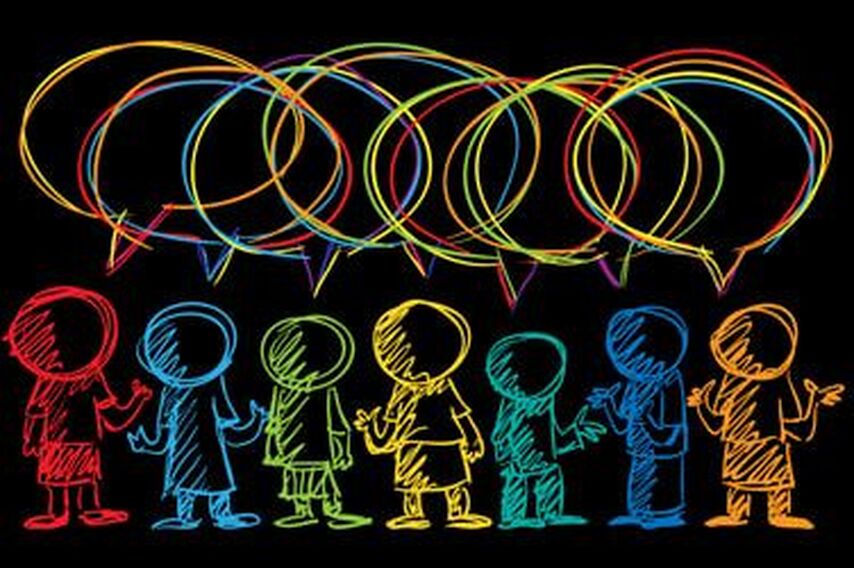Being Bilingual
November 11, 2022
Being bilingual in Waltham High School is so common in our diverse community that its uniqueness often gets overlooked. Bilingual people have a spectrum of experiences, from learning English as a first language, to being exposed to the language later on in life. Fluency has a similar range, and there’s no finite way to measure how well you can speak a language. So how does fluency and being bilingual impact identity? How do people balance the two worlds? And how does our Waltham community foster that? To get a bigger picture, I spoke to some of our bilingual students and teachers at WHS.
A lot of bilingual people are exposed to a language other than English growing up. For Bruna Souza, a journalism student and native Portuguese speaker, it was unquestionably her first language. “I am really very fluent because I went to school [in Brazil] so I learned how to read and write in Portuguese.” For other students, there was a bit of a gray area on which language was their first. Co-president of the LSU, Gustavo Dominguez remembers, “I would learn both Spanish and English at the same time. Which yeah, it was mainly like a household thing that I just like picked up naturally.” Mr. Solorzano, a history teacher at Waltham High, had a similar experience with Spanish. “I learned all of it at home,” he says. English teacher Ms. McCarthy says she spent “the first five years of [her] life… surrounded by only Spanish speakers.”
While the early stages of bilingual people’s lives are typically dominated by a certain language, their relationships with fluency vary greatly. “I’m less fluent I think, than I used to be,” Dominguez says, and while he can understand Spanish fluently, “Speaking it is definitely a bit of a struggle for me. I always have to like, look for the words. Like, think about it for a minute,” says McCarthy. “Even though I might understand it… the output of language is difficult.”
Bilingual people may also be more aware of their accents than monolingual people being exposed to two different environments. Souza talked about how she feels like she has an accent in English because she’s only lived in the U.S. for five years. She says she “[mixes] up some words.” On the other side of the spectrum, Dominguez feels as though he has “the worst accent in Spanish…at home when I speak Spanish it sounds completely fine, but when I’m in school and I speak Spanish, I can hear it so clearly. It’s crazy.” McCarthy feels the same contrast between speaking in private versus in public, saying, “With family, I’m totally fine being able to speak the language, but I still get pretty self conscious, let’s say, ordering an iced coffee [in Spanish].” There is a common theme among bilingual people of being the most self-conscious of their fluency in everyday interactions.
Being bilingual overlaps with culture and community in a multitude of ways. Souza talked about how much she loves speaking Portuguese with people, and how “being able to communicate with other people in Portuguese kind of allows me to embrace my culture and my identity even more.” Dominguez explained speaking Spanish as being “in the know in that culture,” and exposing yourself to a unique perspective. McCarthy similarly described it as, “shared values, and some of the shared traditions, and… that bit of affinity, when you find someone that speaks the same language as you do.”
Another fascinating facet of being bilingual is the difference in expression between languages. Solorzano mentioned how he not only gets a better sense of who someone is when they speak in their most comfortable language, but how it is “very nice not having to translate things in your head when you are talking to someone. You can easily develop and demonstrate a personality in that language.” “When we’re able to talk in Portuguese it’s so much easier to get to know a person, I don’t know I feel like you can be so open, in Brazilian culture,” Souza says. “When I don’t know or forget a word in one language…we can talk in both languages so then we can explain what we’re trying to say even better.” McCarthy described how “there are just some things that don’t translate over,” and how “as a Spanish speaker… there’s more of that, animated feeling… it just feels more like home, sometimes than English.”
The people I spoke with mostly feel the same way about speaking a different language within a predominantly English space. “You just feel like you sort of have a secret code or something,” Dominguez says, while Solorzano describes it as “having a special membership club in the Latinx community.” McCarthy put it as, “like your own little bubble, like your own little cocoon.”
From a student’s perspective, being bilingual in WHS offers opportunities for fast friendships. When Souza moved to Waltham from Brazil, she says, “I was able to make some friends that speak Portuguese,” and she was also “able to help someone actually, and translate to them.” Solorzano professed, “I love living in Waltham. It gives me and my family an opportunity to speak Spanish as much as possible.” McCarthy thinks Waltham’s dual language program not only helps students find their way through the school system, but it also gives “students a sense of belonging, but also knowing that there’s people in the building that do speak the same language that they could go to.” She says being bilingual is, “I think, truly… I’m gonna go with magical. I really think it’s magical.”

